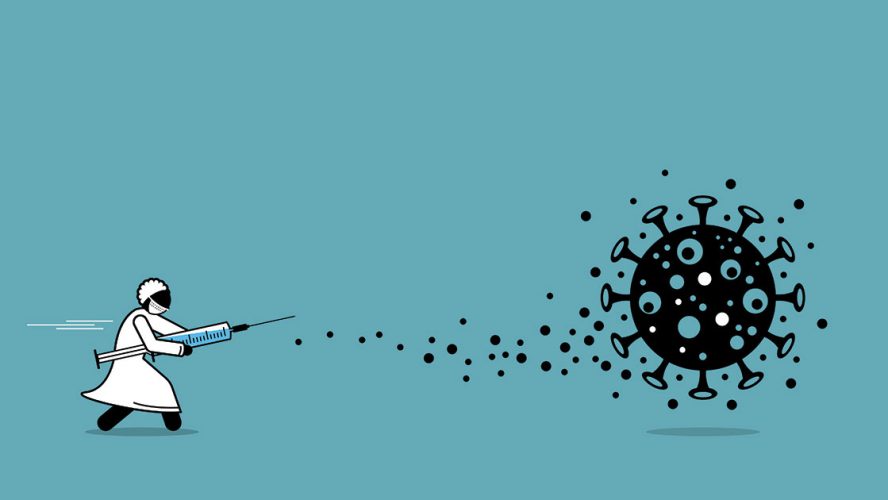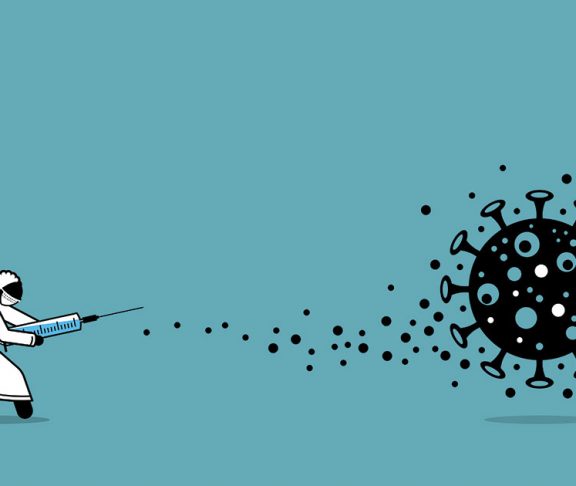What do you need to know about the upcoming COVID-19 vaccine? We ask two experts about effective distribution, timing and acceptance.

John Hewko
General Secretary and CEO, Rotary International
Why is now a critical time in the history of vaccines?
Facing a once-in-a-century pandemic, no part of the world has been left untouched by COVID-19. At the same time, the world has more innovative tools, expertise, and knowledge than at any other time in history. Plus, other immunization programs — such as the effort of Rotary International and its Global Polio Eradication initiative partners to eradicate polio — can serve as a blueprint.
How does vaccine hesitancy affect your organization or industry?
Worldwide, the overwhelming majority of parents want their children vaccinated against polio. However, with the advent of social media, the polio eradication program has seen the number of polio vaccine refusals increase since 2019, and vaccine hesitancy has been declared a top global health threat by the WHO. The polio program uses community-tailored strategies to communicate the safety, efficacy, and importance of the polio vaccine, often relying on trusted voices — like local religious leaders and community influencers — to build vaccine acceptance.
What is the most important innovation in the vaccines and immunizations space right now?
The cold chain system is one innovation that has been critical to the fight to end polio and will also be vital to the effort to distribute a COVID-19 vaccine. Cold chain technology must be utilized — and enhanced, in the case of COVID-19 — to ensure vaccines are kept at the correct temperature so they do not lose effectiveness as they are distributed to communities near and far.
What might the public not know about vaccines or immunizations?
While Rotary and its GPEI partners have been fighting to eradicate polio for over 35 years, many people are surprised to know that polio still exists and continues to paralyze children in parts of the world. The fact that many people see polio as a disease of the past is testament to the effectiveness and widespread distribution of the polio vaccine and to the tremendous effort that has brought polio to the brink of eradication.

Jamie Pearce
Vice President and General Manager InTemp, Onset Computer Corporation
Why should Americans trust that vaccines are safe and effective?
Approved vaccines are transported from the manufacturer to the final distribution point through the cold chain. As part of the pharmaceutical cold chain, the vaccines are constantly monitored with a temperature data logger that ensures that the vaccines stay within their required temperature range. The data is recorded and stored to ensure that every vaccine administered maintains its efficacy to provide the desired immune response for the end patient.
What might the public not know about vaccines or immunizations?
The CDC has provided specific requirements for the temperature monitoring and storage of vaccines. In the United States, the American Association of Immunization Managers has representatives in every state that ensures that all providers across their state comply with those guidelines to ensure the safety and efficacy of administered vaccines.

